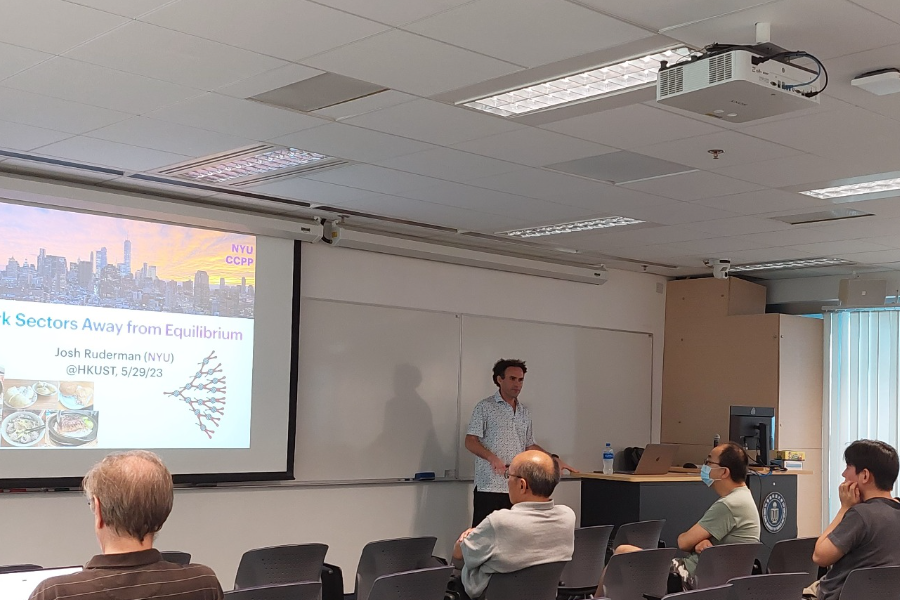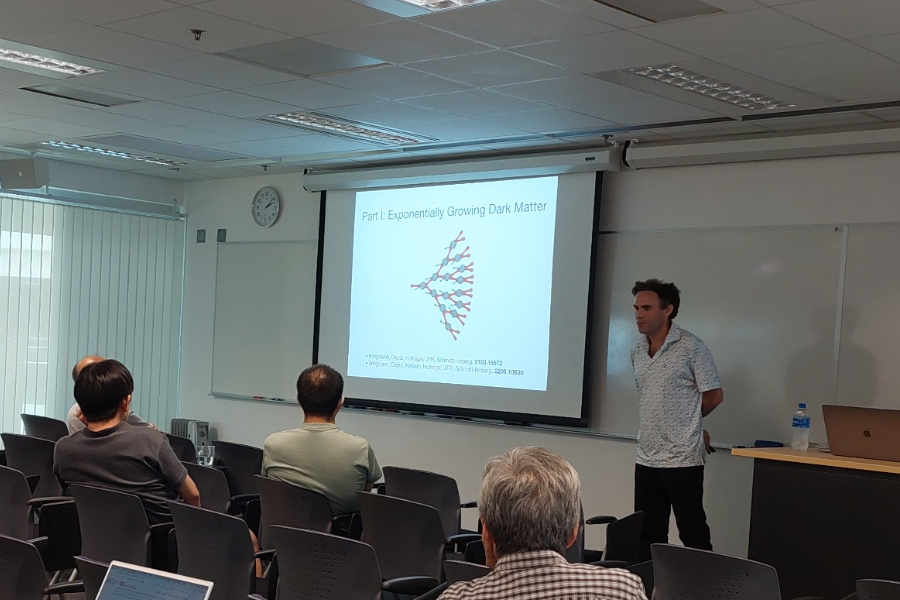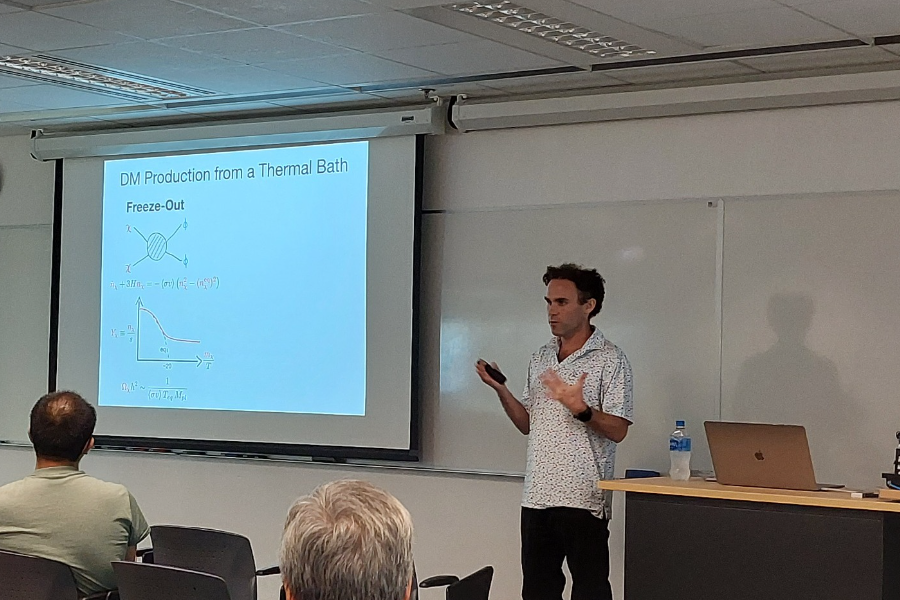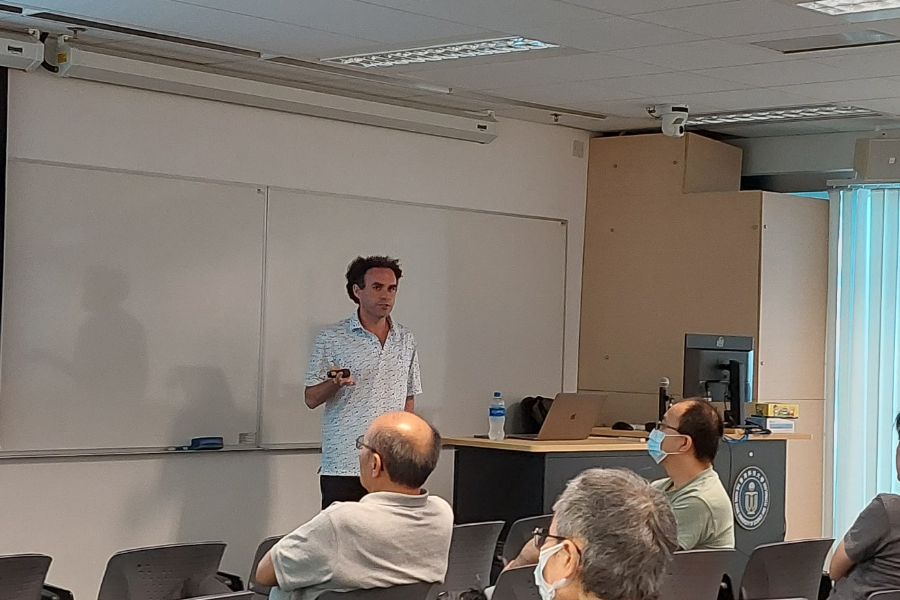Dark Sectors Away from Equilibrium
Abstract
Dark matter and dark radiation may reside in a dark sector. Unlike the sector of ordinary matter, the dark sector may have departed from equilibrium in the early universe. In this talk, the speaker will highlight several examples of nonequilibrium dynamics in dark sectors. In the first part, he will introduce a new mechanism for producing dark matter, where the dark matter number density grows exponentially due to processes that convert one dark matter particle into two or more dark matter particles. He will describe the application of exponential growth to sterile neutrinos. In the second part of the talk, the speaker will discuss oscillations between dark photons and ordinary photons in the presence of millicharged particles. He will show that distortions to the blackbody spectrum of the cosmic microwave background (CMB) provide a novel probe of millicharged particles and massless dark photons.
About the Speaker
Prof. Joshua Ruderman received his BS from Stanford University in 2006 and his PhD from Princeton University in 2011. He was a Miller Fellow at the University of California, Berkeley from 2011-2014, and he joined the faculty of the Center for Cosmology and Particle Physics at New York University (NYU) in 2014. In 2018, he visited CERN as a Scientific Associate. He is currently an Associate Professor of Physics at NYU.
Prof. Ruderman is broadly interested in particle theory, with a focus on physics beyond the Standard Model. His work often resides at the interface of theory and experiment, where he studies the implications of ongoing and future experiments for theories of particles. He is interested in using high energy colliders, direct detection experiments, and cosmological measurements to learn about the origins of dark matter and the Higgs. He serves on the editorial board of SciPost and Journal of High Energy Physics. In 2020, he was awarded the Friedrich Wilhelm Bessel Research Award from the Alexander von Humboldt Foundation.
About the Program
For more information, please refer to the program website at http://iasprogram.ust.hk/particle_theory.
For Attendees' Attention
Seating is on a first come, first served basis.






